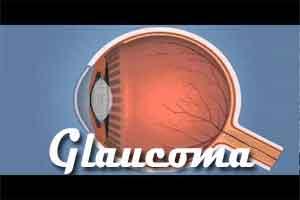- Home
- Editorial
- News
- Practice Guidelines
- Anesthesiology Guidelines
- Cancer Guidelines
- Cardiac Sciences Guidelines
- Critical Care Guidelines
- Dentistry Guidelines
- Dermatology Guidelines
- Diabetes and Endo Guidelines
- Diagnostics Guidelines
- ENT Guidelines
- Featured Practice Guidelines
- Gastroenterology Guidelines
- Geriatrics Guidelines
- Medicine Guidelines
- Nephrology Guidelines
- Neurosciences Guidelines
- Obs and Gynae Guidelines
- Ophthalmology Guidelines
- Orthopaedics Guidelines
- Paediatrics Guidelines
- Psychiatry Guidelines
- Pulmonology Guidelines
- Radiology Guidelines
- Surgery Guidelines
- Urology Guidelines
New simple eye test to detect early signs of glaucoma

For the first time, scientists have developed a simple eye test that may help treat glaucoma, the biggest cause of irreversible blindness, by detecting the disease 10 years earlier than was previously possible. The test also has potential for early diagnosis of other degenerative neurological conditions such as Parkinson's,
Alzheimer's and multiple sclerosis. Loss of sight in patients with glaucoma is caused by the death of cells in the retina at the back of the eye called apoptosis, researchers said. Early detection of this cell death means doctors can start treatments before sight loss begins. Researchers, including those from UK's University College London (UCL), developed a technique which allows doctors to see individual nerve cell death in the back of the eye.
"Detecting glaucoma early is vital as symptoms are not always obvious. Although detection has been improving, most patients have lost a third of vision by the time they are diagnosed," said Francesca Cordeiro, professor at UCL. "Now, for the first time, we have been able to show individual cell death and detect the earliest signs of glaucoma. While we cannot cure the disease, our test means treatment can start before symptoms begin," Cordeiro said.
The technique called DARC detection of apoptosing retinal cells uses a specially developed fluorescent marker which attaches to cell proteins when injected into patients. The sick cells then appear as white fluorescent spots during the eye examination. The examination uses equipment used during routine hospital eye examinations. Researchers hope that eventually it may be possible for opticians to conduct the tests, enabling even earlier detection of the disease. "In the future, the test could also be used to diagnose other neurodegenerative diseases," Cordeiro said.
"Treatment is much more successful when it is begun in early stages of the disease, when sight loss is minimal. Our developments mean we could diagnose patients 10 years earlier than was previously possible," said Philip Bloom from Western Eye Hospital in the UK. The study was published in the journal Brain.

Disclaimer: This site is primarily intended for healthcare professionals. Any content/information on this website does not replace the advice of medical and/or health professionals and should not be construed as medical/diagnostic advice/endorsement or prescription. Use of this site is subject to our terms of use, privacy policy, advertisement policy. © 2020 Minerva Medical Treatment Pvt Ltd